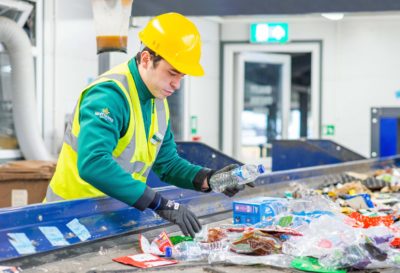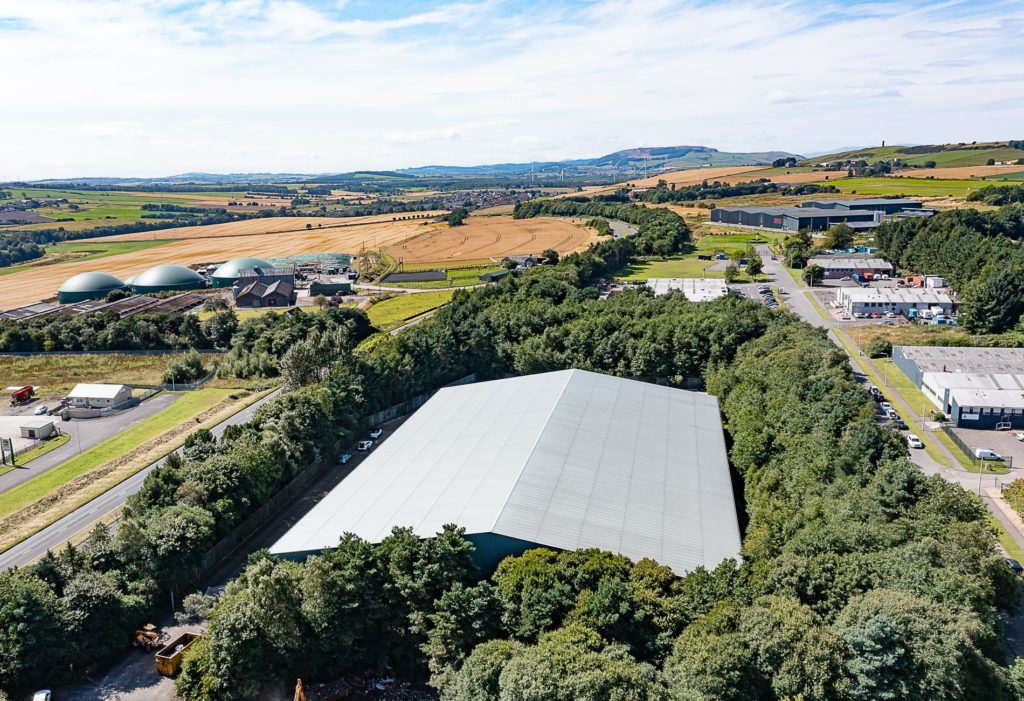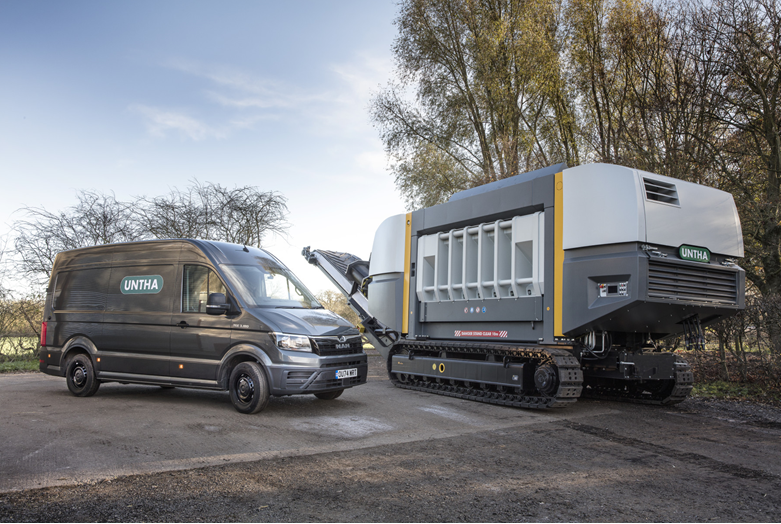Morrisons said the plant in Fife has an “initial capacity” of 15,000 tonnes and will process hard-to-recycle soft plastic – including chocolate wrappers, crisp packets, and food film.
In September, Yes Recycling said the plant is set to “open fully” by the end of 2021.
The retailer said it is now “looking at ways to use the recycled material from the site for a range of applications, including store fixtures and fittings”. In addition, new “Ecosheets”, are being manufactured at the site for use in the agriculture and construction industry.
Ecosheet is an “environmentally friendly alternative to plywood”, which can be used in construction and agriculture industries.
The move means the retailer will become the first supermarket in the UK to own its own recycling operations.
‘Challenge’
Jamie Winter, procurement director at Morrisons, said: “Lots of work has been done by retailers to reduce plastic, but little to recycle what remains. We’re taking on that challenge and making a significant investment in a state-of-the-art soft plastic recycling site. It’ll take problematic plastics, recycle them here in the UK, and give them a new life”.

The move comes as Morrisons has pledged to recycle and reuse the equivalent amount of plastic it puts on to the market within its own recycling facilities by 2025.
It has already announced it will reduce its own brand plastic packaging by 50% by the same year.
Material collected in-store by Morrisons will be sent to its distribution centre in Bellshill before being sent to the plant.
Morrisons didn’t disclose the exact stake it had bought.
Yes Recycling
According to Morrisons, the Fife site is the first of its type in the world. It is co-owned and being constructed by recycling plant specialists Yes Recycling. The plant will turn hard-to-recycle flexible food packaging into plastic flakes, pellets and boards. At current capacity, the site will take 15,000 of tonnes of flexible plastic packaging a year.
Omer Kutluoglu, Co-Owner of Yes Recycling, said: “This is a ground-breaking site which uses new patented plastic recycling technology, which we’ve developed over the last seven years. It is a blueprint for the future and will help to kick-start the UK’s plastics recycling industry. It will mean we can keep plastic in our own country’s ‘circular economy’ and out of our seas and oceans.
Mr Kutluoglu also founded Luton-based plastics reprocessing company 2K Recycling, which was visited by Nick Clegg in 2010 (see letsrecycle.com story).
Process
After materials enter the site, the plastic material is washed and sorted.
It is then broken down and turned into flakes and pellets which can be used to make new plastic products in a ‘closed loop’.
Other pellets are compressed into Ecosheets which can be recycled again at the end of their life.
Nestlé UK and Ireland
Yes Recycling’s Fife plant also secured a ‘pre-investment’ of £1.65 million for its Fife plant by Nestlé UK and Ireland in September (see letsrecycle.com story).
At the time, Yes Recycling said the facility will process packaging such as KitKat wrappers, Purina pet food pouches and cereal bags collected by Dunfermline-based Cireco as part of Fife council’s kerbside service.
The statement added that the packaging will be collected as part of residents’ normal service for dry mixed recyclables, and not as a separate stream. The packaging will be separated from other recyclables at Cireco’s Dunfermline materials recycling facility.
Yes Recycling say the plant is set to “fully” by the end of 2021, and it will turn flexible plastics, such as those typically used in food packaging, into building materials.
It’s very encouraging to hear of the investment made by UK Plastics Pact member Morrisons
– Helen Bird, strategic technical manager in plastics at WRAP
WRAP
The move from Morrisons was backed by resources charity WRAP.
Helen Bird, strategic technical manager in plastics at WRAP, said: “It’s very encouraging to hear of the investment made by UK Plastics Pact member Morrisons in the Yes Recycling plastic bags and wrapping recycling facility. While we need to reduce unnecessary plastic, when it comes to recycling we need to make it as simple for people as possible.
“Packaging design needs to be improved and we need to get collection services rolled out across the nation – from people’s homes in the future and from supermarkets in the interim. But ensuring the material is actually remanufactured into new products or packaging is key – that is after all the whole point of recycling.”









Subscribe for free